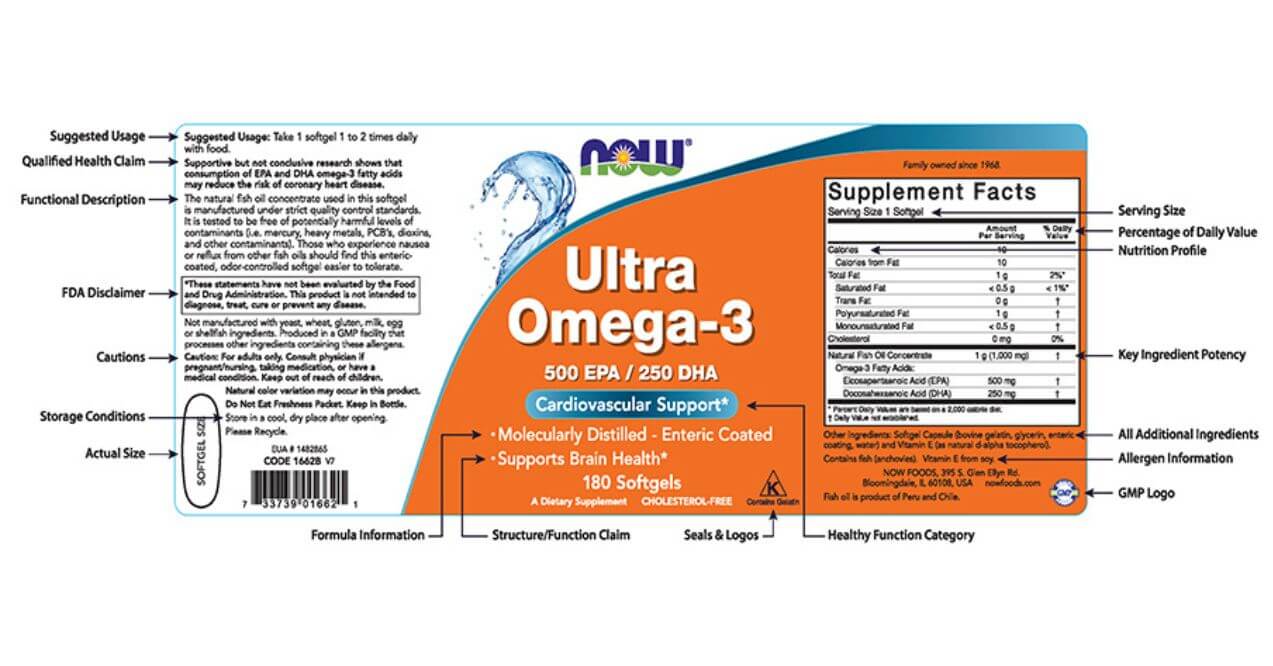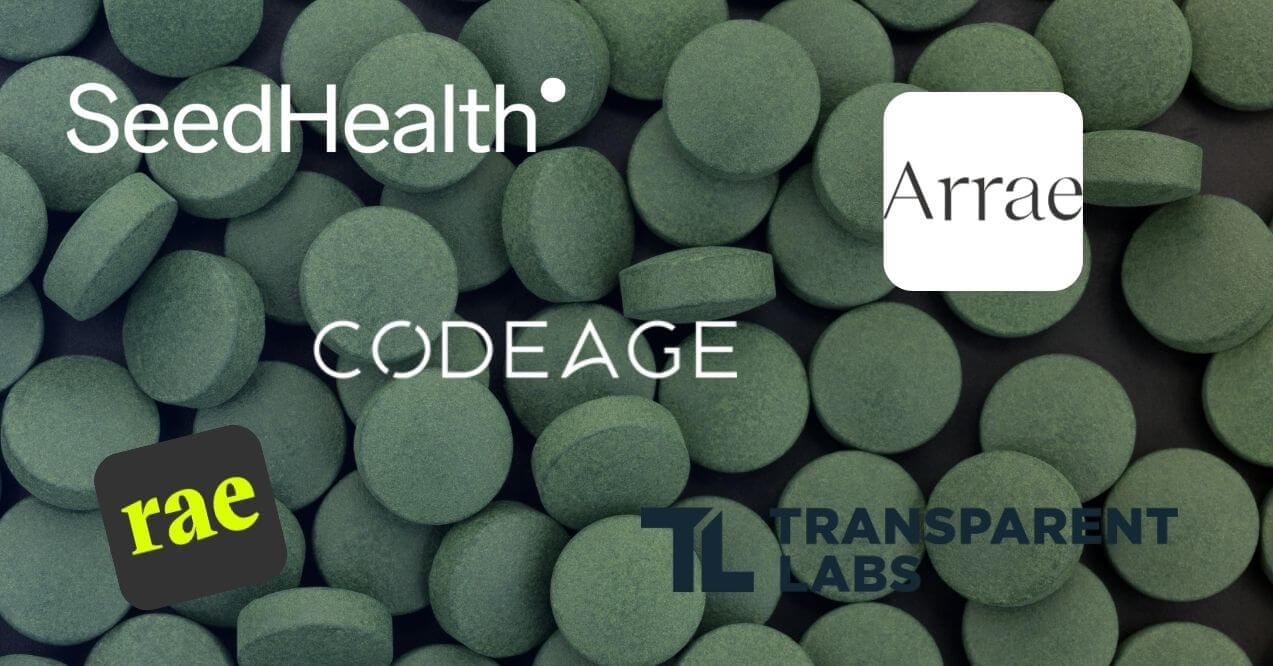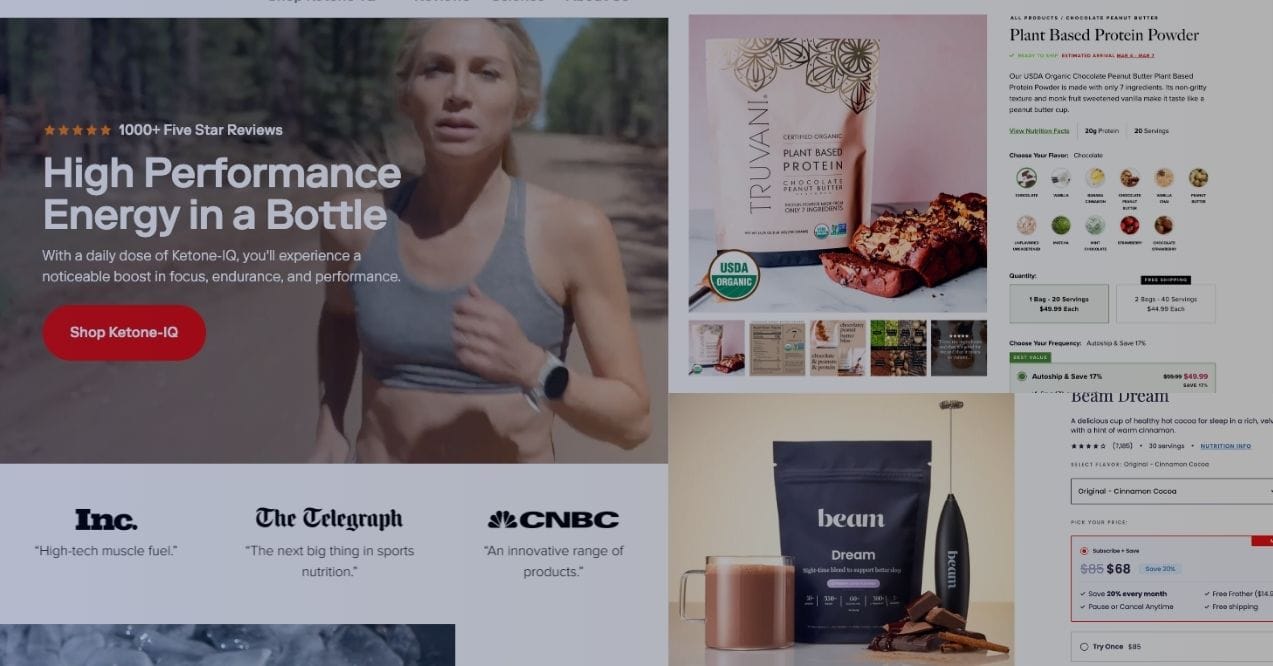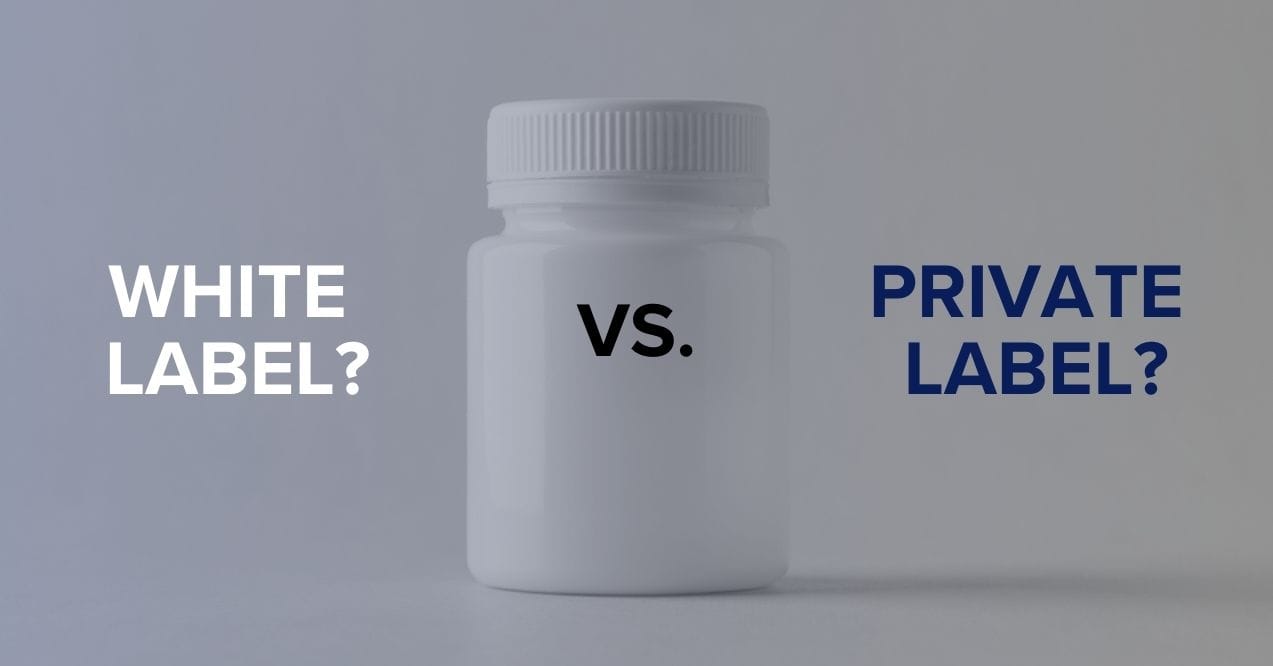How to start a supplement company [7 step guide for 2025]


The global supplement market continues to expand, making 2025 an excellent time for creating a supplement company. With projected industry growth in USA reaching $70.8 billion by 2031, the opportunities for ambitious entrepreneurs to create their own vitamin brand are substantial.
Ready to take the leap? This guide will show you how to start a supplement company in seven clear steps.
The state of the supplement industry in 2025
The supplement industry continues its remarkable growth trajectory, with the global market size reaching $444.98 billion in 2025. This expansion is driven by increasing health consciousness, aging populations, and growing interest in preventive healthcare.
Several categories are showing exceptional growth potential:
Immune Health Supplements have maintained strong momentum post-pandemic, with elderberry, zinc, and vitamin D products leading the category. The immune support segment is expected to grow at a CAGR of 13% through 2025.
Mental Wellness Supplements, including nootropics and adaptogens, are experiencing unprecedented demand. Products targeting stress relief, focus, and cognitive performance are particularly popular among millennials and Gen Z consumers.
Sports Nutrition has evolved beyond traditional bodybuilding, expanding into lifestyle and recovery supplements. Plant-based protein products are growing at twice the rate of traditional protein supplements.
Key Supplement Industry Trends
- Personalized nutrition and subscription-based supplementation
- Sustainable packaging and eco-friendly manufacturing
- Transparency in ingredient sourcing and third-party testing
- Integration of technology for product traceability and customer education
Consumer preferences have shifted decisively toward clean labels, sustainable practices, and scientifically-backed formulations. This creates significant opportunities for new brands that prioritize quality, transparency, and environmental responsibility.
Step 1: Define your supplement niche
When learning how to start a supplement company, choosing the right niche is crucial. The 2025 supplement market offers various profitable segments.
For example, consider the growing brain health supplement market. This surge is driven by increased awareness of cognitive health and the rise of remote work culture. The global brain health supplements market was valued at $8.63 billion in 2022 and is expected to grow at a CAGR of 13.3% from 2023 to 2030.
Similarly, the beauty supplements market, particularly products containing collagen and biotin, has gained attention across various age groups. The global botanical supplements market, which includes beauty supplements, is projected to grow from $60.02 billion in 2025 to $118.74 billion by 2032, exhibiting a CAGR of 10.24%.
To identify your ideal niche:
- Analyze Google Trends data for emerging supplement categories
- Study successful brands in your chosen market
- Join relevant social media groups to understand customer pain points
- Review Amazon’s Best Sellers list in the supplements category
Step 2: Create your product strategy
Making your own supplements requires careful consideration of your manufacturing approach. Your choice will impact everything from initial investment to time-to-market, so it’s crucial to understand your options.
White labeling represents the fastest route to market, typically requiring $15,000-30,000 in initial investment. This approach works well for new entrepreneurs who want to test the market with proven formulations. You’ll work with established manufacturers who already have popular formulas ready to go—you just add your branding and packaging design.
Contract manufacturing offers a middle ground, allowing you to customize existing formulations while leveraging manufacturer expertise. This path typically requires $30,000-75,000 to start but gives you more control over your product’s unique features. Many successful supplement companies start here, as it balances innovation with practicality.
Custom or private label provides complete control over your product but demands the highest investment ($75,000-150,000) and the longest development time. This path makes sense when you have unique insights into customer needs or proprietary formulations that set you apart from competitors.
Quality and compliance must be your top priorities regardless of your chosen manufacturing path. When evaluating manufacturers, verify these essential requirements:
- FDA-registered facility
- Current Good Manufacturing Practices (cGMP) guidelines compliance
- Third-party testing for product quality and safety
Request documentation of these requirements from potential manufacturers. This due diligence protects your brand and ensures product safety.
Step 3: Navigate legal requirements
Creating a supplement brand comes with significant regulatory responsibilities. The FDA maintains strict oversight of the supplement industry, and compliance isn’t optional – it’s essential for long-term success and consumer trust.
Start by registering your business properly. While an LLC is the most common structure for supplement companies, consult with a business attorney to determine the best option for your situation. Expect to spend at least $500-1,000 on business registration and obtain an EIN (Employer Identification Number) for tax purposes.
FDA compliance requires several key steps:
- Register your facility with the FDA (free)
- List your products in the FDA database
- Ensure your labels meet all regulatory requirements
- Establish a system for adverse event reporting
Insurance is another crucial aspect of risk management. A comprehensive insurance package should include:
- Product liability insurance to protect against claims related to your supplements
- General liability insurance for day-to-day business operations
- Inventory insurance to protect your stock
Work with an experienced insurance broker who understands the supplement industry. They can help you identify coverage gaps and find policies that match your specific needs.
Step 4: Build your brand identity
Your brand identity goes far beyond just a logo – it’s the entire experience customers have with your supplement company. Start by developing a clear brand strategy that answers fundamental questions: Why does your brand exist? What problems do you solve? How are you different from competitors?
The visual elements of your brand should reflect your values and resonate with your target audience. This includes:
- A memorable logo that works across all platforms
- A consistent color palette that evokes the right emotions
- Typography that matches your brand personality
- Packaging design that stands out on shelves and in social media feeds
Your brand story needs to be authentic and compelling. If you’re creating a supplement company focused on athletic performance, share your own fitness journey. If you’re developing wellness supplements, explain what inspired you to help others achieve better health.
The packaging must balance aesthetic appeal with regulatory compliance. FDA guidelines require specific information on supplement labels:
- Clear product identity statement
- Net quantity of contents
- Nutrition information panel
- Ingredient list
- Manufacturer information
- Batch number and expiration date
This is an example of a properly formulated supplement bottle:

Step 5: Set up your sales channels
When you create your own vitamin brand, choosing the right sales channels can make or break your success. The supplement industry has shifted dramatically toward digital sales, but a multi-channel approach often yields the best results.
E-commerce should be your primary focus, with your own website serving as the foundation of your digital presence. Platforms like Shopify make it easy to start selling online, offering features specifically designed for supplement companies. Your website gives you complete control over the customer experience and typically provides the highest profit margins.
Amazon represents another crucial marketplace for supplement brands. While the platform’s fees can eat into your margins, its massive customer base makes it nearly impossible to ignore. Success on Amazon requires a different strategy than your website: focus on optimization for Amazon’s search algorithm, gathering reviews, and maintaining consistent inventory levels.
Don’t overlook traditional retail opportunities. Health food stores, fitness centers, and wellness clinics can provide valuable exposure for your brand. These partnerships often start small but can grow into significant revenue streams. When approaching retailers, prepare a professional sales package that includes:
- Product samples
- Wholesale pricing structure
- Marketing support offerings
- Minimum order requirements
- Return policy
Step 6: Launch your marketing strategy
Marketing your supplement brand requires a sophisticated approach that builds trust while driving sales. Your strategy should educate potential customers about your products’ benefits while establishing your brand as a credible voice in the health and wellness space.
Content marketing forms the foundation of most successful supplement companies’ marketing strategies. Create valuable content that addresses your target audience’s concerns:
- Educational blog posts about ingredients and their benefits
- Video content demonstrating proper usage and results
- Infographics explaining the science behind your formulations
- Email newsletters with health tips and product updates
Social media plays a crucial role in building community around your brand. Instead of purely promotional content, focus on providing value and engaging with your audience. Share customer success stories, behind-the-scenes glimpses of your operation, and expert insights about health and wellness.
Influencer partnerships can significantly accelerate your growth, but choose partners carefully. Look for influencers who:
- Align naturally with your brand values
- Have engaged followers in your target demographic
- Create authentic content that educates and inspires
- Have a track record of successful supplement promotions
Step 7: Scale your business
Scaling a supplement company requires careful attention to both operations and growth opportunities. Start by establishing solid foundations in your inventory management and customer service systems before pursuing aggressive expansion.
Customer retention should be a top priority. The supplement industry thrives on repeat purchases, making subscription programs particularly effective. Design your subscription offering to provide real value:
- Offer meaningful discounts (typically 10-15%)
- Provide flexible delivery schedules
- Include exclusive content or products
- Add personalized recommendations
Track key performance indicators (KPIs) to guide your growth decisions:
- Customer Acquisition Cost (CAC) should stay below one-third of Customer Lifetime Value (CLV)
- Monitor subscription retention rates—aim for at least 60% after six months
- Keep inventory turnover rates healthy (4-6 times annually)
- Track customer satisfaction through reviews and survey responses
Final thoughts
Starting and growing a successful supplement company in 2025 requires a balanced approach to product development, marketing, and operations. Focus on building a strong foundation of quality products and customer trust, then scale thoughtfully based on market response and data-driven decisions.
Stay committed to your brand’s values, maintain high quality standards, and continuously adapt to changing market conditions. With dedication and the right strategy, you can build a thriving supplement business that makes a real difference in people’s lives.
Initial costs typically range from $15,000 to $75,000, depending on your manufacturing approach. White labeling is the most affordable option at $15,000-30,000, while private labels can require $75,000 or more. Consider additional costs for marketing, insurance, and legal compliance.
From initial planning to product launch, expect 4-6 months with private labeling or 6-12 months with custom formulation. This includes time for product development, regulatory compliance, branding, website setup, and initial marketing campaign preparation.
The FDA doesn’t require pre-approval for dietary supplements, but you must register your facility, follow current Good Manufacturing Practices (cGMP), and ensure proper labeling. You’re responsible for product safety and maintaining compliance with FDA regulations.
References:
Statista. (2024). Total U.S. dietary supplements market size 2023 vs. 2031. https://www.statista.com/statistics/828481/total-dietary-supplements-market-size-in-the-us/
The Business Research Company. (2025). Nutritional Supplements Global Market Report 2025. In The Business Research Company. https://www.thebusinessresearchcompany.com/report/nutritional-supplements-global-market-report
The Business Research Company. (2025). Mental Wellness Global Market Report 2025. In The Business Research Company. https://www.thebusinessresearchcompany.com/report/mental-wellness-global-market-report
The Business Research Company. (2025). Sports Nutrition Global Market Report 2025. In The Business Research Company. https://www.thebusinessresearchcompany.com/report/sports-nutrition-global-market-report
The United States Dietary Supplements Market Size & Outlook, 2032. (2024). Grandviewresearch.com. https://www.grandviewresearch.com/horizon/outlook/dietary-supplements-market/united-states
Brain Health Supplements Market Size, Share & Trends Analysis Report by product (Natural Molecules, Vitamins & Minerals), by Application (Memory Enhancement, Attention & Focus), by region, and segment Forecasts, 2023 – 2030. (n.d.). https://www.grandviewresearch.com/industry-analysis/brain-health-supplements-market
Botanical Supplements Market Size, share | Growth, 2025-2032. (n.d.). https://www.fortunebusinessinsights.com/botanical-supplements-market-106514
COMMONLY ASKED QUESTIONS
Advertisement. This site offers health, wellness, fitness and nutritional information and is designed for educational purposes only. You should not rely on this information as a substitute for, nor does it replace, professional medical advice, diagnosis, or treatment. If you have any concerns or questions about your health, you should always consult with a physician or other health-care professional. Do not disregard, avoid or delay obtaining medical or health related advice from your health-care professional because of something you may have read on this site. The use of any information provided on this site is solely at your own risk.

















